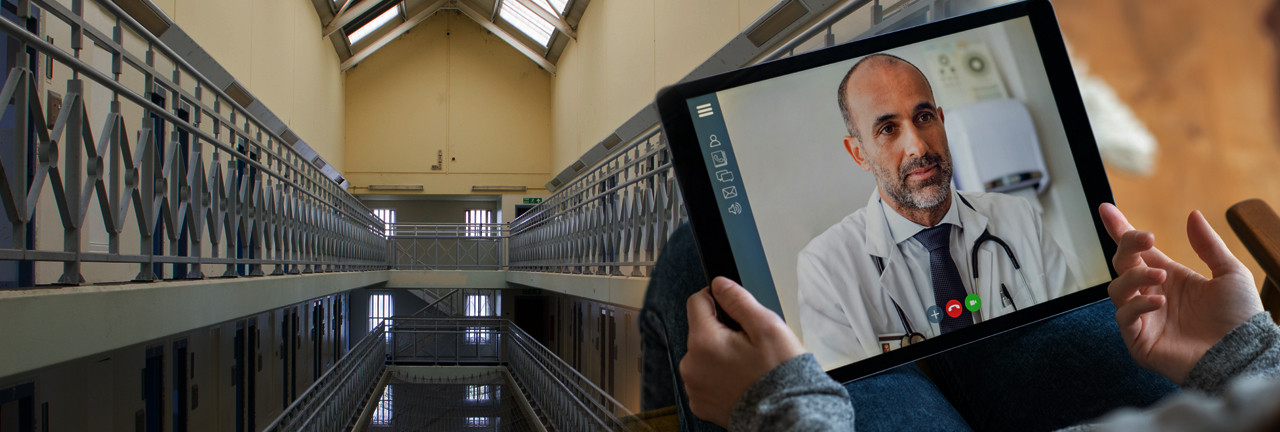HMPPS’ Telemedicine programme and the power of technology as a force for social change
An excellent example of this model in action is HMPPS and NHSE/I's pioneering Telemedicine programme, for which Exponential-e acted as a key technology partner. This project was initiated in response to the COVID-19 pandemic, where social distancing regulations, combined with the stringent security requirements within prisons, and was certainly successful in that regard, ensuring those going through the prison would still be able to access healthcare services without compromising their safety, or that of clinicians and prison staff.
But with social distancing requirements now largely relaxed, it is the ideal time to consider how the new technology infrastructure can be developed, and how the lessons learned throughout the Telemedicine programme can be used to further optimise the delivery of healthcare and other critical services across the country.
The impact of the Telemedicine programme
A 2022 report by the Prisoner Policy Network revealed the following:
- Patients appreciated the easier access to healthcare services, and the minimal number of delays and cancellations, and overall lack of stress compared to external hospital appointments
- Many described the new system as providing a sense of dignity under difficult circumstances, although concerns were raised around the suitability of video consultations in every instance, a lack of proper explanation of what a Telemedicine appoint would involve, and a perceived lack of privacy and confidentiality, particularly when consultants were dialling in from home
- Those in the process of leaving the prison system appreciated the opportunities Telemedicine offered around accessing community support, and - in certain cases - helped mitigate a longstanding mistrust of such services
- While face-to-face consultations were still widely preferred, being able to access healthcare services throughout lockdown, with minimal disruption to daily routines, was seen as a major benefit
Keeping people at the centre of everything
It is clear from this feedback that when it comes to the delivery of critical services of any sort, the human touch is just as important as the technology. A successful deployment process must go hand-in-hand with cultural change, meaning public sector staff must be properly supported in making effective use of the new systems, while those accessing public services must be provided with appropriate support and guidance, where necessary, and enjoy complete peace of mind that their privacy - including their data - will be completely protected.
If this people-first approach is applied consistently, then there is enormous potential for technology to be a force for positive social change, ensuring those who need to access critical public services can do so with minimal obstacles, regardless of their specific circumstances - as the success of the Telemedicine programme demonstrates.
For this reason, Exponential-e has long championed technological innovation across the UK's public sector, working closely with organisations in healthcare, housing, education, and government to deliver exceptional citizen outcomes and provide reassurance during times of stress and uncertainty. This is a fundamental part of our company culture, and one we will continue to pursue in the years ahead.
"With Telemeds there wouldn't be so many cancellations and people would start to feel like they're getting the attention they need and things would probably get sorted out. If it can clear the backlog I'm all for it."
Technological innovation is transforming the way public sector organisations across the UK engage with citizens and deliver critical services whenever and wherever they are needed. In this exclusive report, we consider the impact of these developments, and explore how organisations can accelerate their own digital journeys, ensuring exceptional citizen outcomes are the norm.
When you subscribe to the blog, we will send you an e-mail when there are new updates on the site so you wouldn't miss them.

